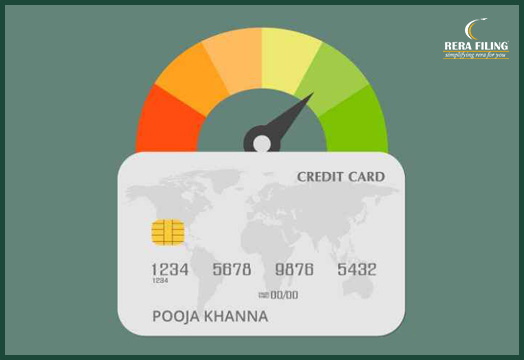How credit cards affect your credit score?

- Wednesday 10th July 2019
- Author: Shreya Uppal
Highlights
There are a lot of factors that affect the credit score. Some people get credit cards for the sole purpose of building credit so that they can get better rates on loans in the future.
Your credit limit is the maximum amount that the bank has made available to you after judging your financial capacity
Relying solely on one credit card is also not good so you should have a basic card and another one that is more aligned to your favorite spending categories.
A credit score is very much essential to determine the financial capability of an individual. There are a lot of factors that affect the credit score. Some people get credit cards for the sole purpose of building credit so that they can get better rates on loans in the future. These are assigned by organizations like CIBIL etc. It is a record of your loans accounts and credit cards and helps other lenders in judging your ability to repay the loan you seek. Your credit card issuer also shares important information related to your overdue balance, available credit limit, payment history, etc. and all of these, along with the details of other loans you have taken, make up your credit score.
Ways are explained below:
1. Having a credit card
Just having a credit card is enough to start you on the credit journey. Those who do not have any open credit cards or active loan accounts will not have a credit score. Since the credit score is a mirror of credit behavior the bank would not be able to judge whether people without credit score could make regular repayments or not. There are several other factors that come into play but the credit score is the first thing that the lenders look at.
2. Available Credit limit
Your credit limit is the maximum amount that the bank has made available to you after judging your financial capacity. At any given point, you cannot spend above this limit and if you do, you will have to pay hefty charges. As you make purchases on your card, this limit gets decreased by the amount of your purchase and as you make payments, the available limit increases. It is not a good practice to max out your credit cards as it will increase your credit utilization ratio. A high utilization ratio translates to bad credit score. Credit utilization is the ratio of your outstanding balances to the total available limit. It measures how much of your credit limit you are using. Lower the ratio the better it is for your profile. You should not bring your utilization limit above 30 percent.
3. Overdue balances
The balances you carry on your credit cards make up a major portion of your credit score. But how it affects your score is a tricky thing. If you keep paying the minimum amount due every month and rolling the balance over to the next month, it is not considered as a late payment. So, your credit score will not be affected in this case. However, when you roll over credit, you are adding to your own financial burden in the coming months which may be difficult to pay off at once.
4. No. of credit cards
Relying solely on one credit card is also not good so you should have a basic card and another one that is more aligned to your favorite spending categories.
More Articles
- Online Listing Tips for Real Estate Agents
- How to start a Real Estate business in India - a complete guide !
- Renting Vs Buying property - How will you decide?
- What you should do in Property Management services
- Home Loan Insurance
- How to choose your builder?
- How to ensure fire safety in your home!
- Tips To Keep In Mind While Taking A Home On Rent
- Importance of Home Security
- How to plan your property budget?
- Leased vs. Purchased vs. Co-Working Office Spaces
- Easy Tips to Build an Eco Friendly Home
- Sample Flat - A Trick by a Builder?
- How to have a Beautiful Guest Room? Impress your Guests with these Guest Room Ideas..
- Understanding MCLR and its Effects on Home Loans
- 5 simple ways to close a real estate deal
- Is it worth to buy property near an airport ?
- Home loan tax benefit
- How to be successful in business as an introvert
- Cost effective home decor ideas
- What to Be-Paying Guest or a Tenant??
- Complete guide to start your small business
- Sports township- New trend in India
- Online Listing Tips for Real Estate Agents
- Understanding Floor Area Ratio- FAR
- Town and Country Planning | Meaning and Importance
- Checklist of Important Property Documents- All You Need to Know
- Role of CREDAI in real estate
Copyright © 2023 RERA Filing. All rights reserved.
 Rera
Act
Rera
Act
 Maharashtra
Maharashtra Karnataka
Karnataka Andhra Pradesh
Andhra Pradesh Uttar Pradesh
Uttar Pradesh